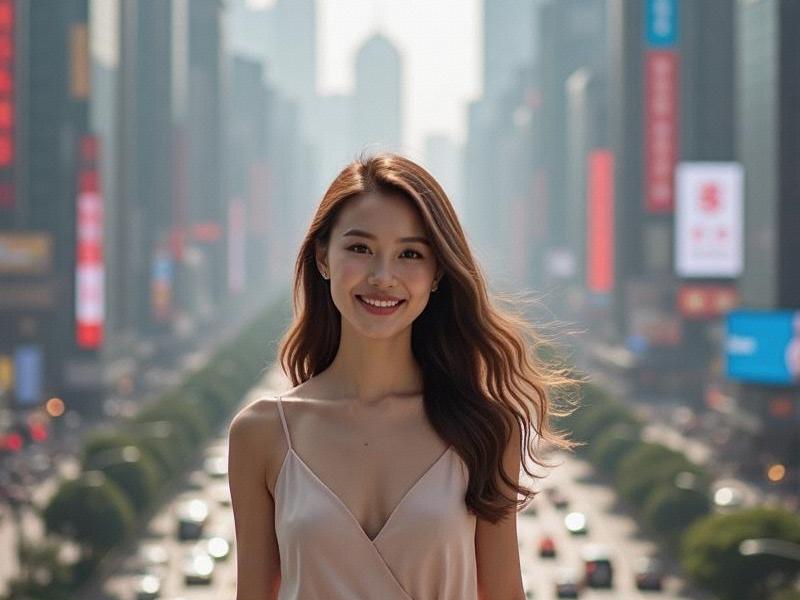This investigative feature explores how Shanghai's women are creating a new paradigm of beauty that blends traditional Chinese values with global ambitions, examining their impact on business, culture and social norms.

The streets of Shanghai tell a story of quiet feminine revolution. Along Nanjing Road, young professionals in tailored qipao-inspired dresses stride past luxury boutiques balancing designer handbags with bubble tea. In Lujiazui's corporate towers, female executives command boardrooms where they represent 38% of senior management - nearly double China's national average. This is the new face of Shanghai womanhood: culturally rooted yet globally ambitious, redefining what beauty means in 21st century China.
Shanghai has always been China's fashion capital, but today's local women are writing a new playbook. Market research reveals fascinating trends: while 72% of Shanghai women aged 25-40 regularly use traditional Chinese medicine for skincare, 89% also invest in international cosmetic brands. The average Shanghai woman spends ¥2,800 monthly on beauty - not for male approval, but as "professional armor" and self-expression, according to Fudan University's 2024 Urban Women Study.
爱上海最新论坛
The workplace transformation proves most striking. Shanghai now boasts China's highest percentage of female tech founders (23%), with role models like Chen Danqing, whose AI startup recently achieved unicorn status. "In Shanghai, competence is the new cosmetic," Chen remarks during our interview at her Xuhui headquarters. "My engineering team doesn't care if I wear lipstick, only if I can read code."
上海贵族宝贝自荐419
Fashion reflects this duality. Local designers like Helen Lee pioneer "New Shanghai Style" - cheongsams with smartphone pockets, silk dresses pairing with sneakers. The look dominates social media, where Shanghai influencers (XiaofeiStyle's 8.7M followers) promote "authentic hybridity." As Lee explains: "We're not copying Paris or New York. We're creating something distinctly Shanghainese."
419上海龙凤网
Cultural observers note deeper implications. Shanghai's women are delaying marriage (average age now 31.2 versus China's 28.8) while prioritizing education (63% hold bachelor's degrees). They dominate the city's art scene - from avant-garde painter Lin Tianmiao to conductor Yu Long. Even in traditional sectors, change brews: Master Huang, a 5th-generation tea ceremony practitioner, now teaches mostly female students. "They understand tea isn't just tradition," Huang notes. "It's diplomacy, business, science."
Challenges persist. Gender pay gaps remain at 18%, and "leftover women" stigma lingers in older generations. Yet the momentum seems unstoppable. As Shanghai's female-led startups attract record venture capital and its fashion weeks gain global attention, one truth becomes clear: the city's most captivating beauty isn't skin deep - it's in the ambition, intellect and cultural confidence of its women. In reshaping themselves, they're reshaping China's future.